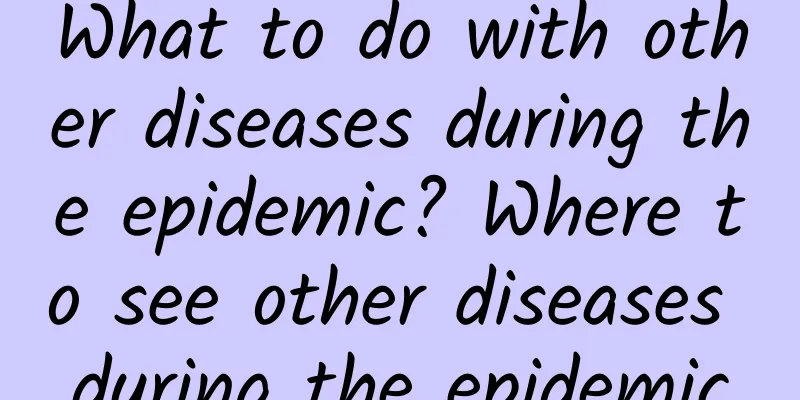These seven nutrients are indispensable for the elderly

|
As the weather gets colder, the elderly have fewer outdoor activities and naturally eat less. In addition, as they age, their body functions gradually deteriorate and their teeth become worse, which may affect their eating and lead to the deficiency of various nutrients. In particular, the seven nutrients that are most likely to be lacking in the elderly will be harmful to their health if they are not supplemented in time. Calcium: Preventing osteoporotic fractures As we age, our ability to absorb and utilize calcium decreases, and we generally only absorb about 20%. In addition, reduced physical activity will increase bone calcium loss, especially for older women, who lose bone mass faster than men after menopause and are more likely to suffer osteoporotic fractures than men. Both elderly men and women should pay attention to calcium supplementation. In addition to ensuring 300 grams of milk every day, it is also recommended to eat 25 grams of soybeans and 100-200 grams of green leafy vegetables every day. This is because soybeans and green leafy vegetables are also good sources of calcium. 300 grams of milk can be ensured by a variety of combinations: 150-200 grams of milk + 150 grams of sugar-free yogurt, 150-200 grams of milk + 20-30 grams of natural low-salt cheese, 25-30 grams of whole milk powder + 150 grams of sugar-free yogurt. 25 grams of soybeans are equivalent to 100 grams of tofu or 50 grams of dried tofu. Vitamin D: Prevents osteomalacia Vitamin D deficiency in the elderly can lead to osteoporosis and osteomalacia, as well as calcium deficiency and complications. Vitamin D can only work after being activated by the liver and kidneys. The activation capacity of vitamin D in the elderly is reduced. In addition, most foods do not contain vitamin D, and a few natural foods only contain trace amounts of vitamin D, so it is difficult to supplement vitamin D through natural foods. Sunbathing can synthesize vitamin D, but the elderly have less outdoor activities and wear long sleeves and hats, so it is not realistic to rely on sunbathing to supplement vitamin D. Therefore, it is recommended to eat some vitamin D-fortified foods or formula foods containing vitamin D, or take vitamin D preparations to supplement 15 micrograms of vitamin D every day. Iron: Prevents anemia and its symptoms The elderly have a decreased ability to absorb iron and their hematopoietic ability also declines. In addition, due to the decline in taste, chewing, swallowing and digestion functions, they are prone to early satiety, leading to insufficient food intake. These factors make the elderly a high-risk group for anemia. Lean meat, animal blood, animal liver and shellfish are good ways to supplement iron. It is recommended that the elderly eat 40-75 grams of livestock and poultry meat every day; eat animal blood and animal liver 2-3 times a month, about 25 grams each time; and eat 40-75 grams of aquatic products. Special reminder: the iron in plant foods is non-heme iron, which has a very low absorption rate, so don't expect to supplement iron by eating jujube, black fungus, black beans, and spinach. In addition, it is best for vegetarian elderly people to supplement iron through fortified foods, special formula foods or preparations. Zinc: Boosts immunity Zinc deficiency in the elderly can lead to symptoms such as decreased appetite, night blindness, decreased vision, slow wound healing, and low immunity. Due to changes in body functions, such as taste degeneration and decreased chewing function, the digestion, absorption, and utilization of zinc will also be reduced, so the zinc deficiency problem in the elderly cannot be ignored. Seafood, nuts, and animal offal contain high levels of zinc, which can help the elderly replenish zinc. Oysters, in particular, contain 71.2 mg of zinc per 100 grams. Eating 50 grams of oyster meat can meet 298% and 421% of the daily zinc needs of men and women, respectively. Protein: Reduces risk of fractures The elderly have poor teeth and appetite, which will affect their protein intake. In addition, during the aging process, the body's protein catabolism exceeds anabolism, so it is easy to lack protein, aggravate muscle attenuation, cause slow movement and even increase the risk of fractures. Meat, eggs, milk and beans are all good sources of high-quality protein, but for elderly people with chronic diseases such as dyslipidemia and hypertension, they should eat less pork, beef and mutton, and 40-75 grams of poultry meat per day is enough. It is recommended to increase the intake of marine fish rich in n-3 fatty acids, such as salmon, cod, mackerel, sea bass and yellow croaker, which is not only beneficial to cardiovascular health, but also helps prevent muscle loss. Dietary fiber: promotes gastrointestinal motility The chewing function of the elderly is reduced, and the types of food they eat are also limited, and they generally have insufficient dietary fiber intake. In addition, the gastrointestinal motility of the elderly is slow, so they should pay more attention to the supplementation of dietary fiber. To supplement dietary fiber on a daily basis, you should eat more fresh fruits and vegetables and whole grain foods, such as edamame, celery leaves, amaranth, kiwi, oatmeal, oat bran, quinoa, buckwheat, red beans, mung beans, etc. If you are worried about not being able to chew it well, you can cut the vegetables into smaller pieces, and soak the grains and beans in clean water the night before and refrigerate them overnight. Carotene: Reduces risk of dementia The elderly must pay attention to the supplementation of dark vegetables, such as rapeseed, Chinese cabbage, spinach, carrots, pumpkin, etc. These foods are rich in carotene, which can be converted into vitamin A in the body and is beneficial to the health of the eyes and skin. Several studies have found that, especially in the elderly, people who have a high intake of carotene in their diet or have higher levels of carotene in their blood have slower cognitive decline, less white matter lesions in the brain, and less brain atrophy. In other words, eating more foods rich in carotene can reduce the risk of Alzheimer's disease. However, elderly people who smoke should not take large doses of beta-carotene supplements, because studies have mentioned that high doses of beta-carotene may increase the risk of lung cancer in smokers. In addition to paying special attention to the above seven nutrients, it is also important to maintain a balanced nutrition and a healthy weight. This is because being fat makes it easy to get chronic diseases such as high blood pressure and dyslipidemia, while being thin makes it easy to suffer from malnutrition. In other words, being too thin or too fat will increase the risk of death. (The author is a director of the Capital Health Nutrition and Gourmet Society and a registered dietitian) |
>>: Mixed infection has occurred! Many places have issued reminders: Wear a mask!
Recommend
What are the symptoms of a girl's pregnancy?
Pregnancy is the most important stage for every g...
Are the first seven days and the last eight days of menstruation the safe period?
To put it simply, the safe period is a concept re...
A new "co-suspension" triple drug is on the market. How should we choose among the various inhalation preparations?
COPD is one of the most common chronic respirator...
Menopause occurs in both men and women? How to adjust your diet? What should you pay attention to in your life? Huaxi doctors say...
As the saying goes "When you reach middle ag...
The most effective and fastest way to tighten the vagina
Because of constant surgeries, abortions and freq...
What fruits are not suitable for menstruation?
There are many foods that cannot be eaten during ...
Can Chinese medicine treat intrauterine adhesions?
If female friends have intrauterine adhesions, th...
Treatment of fallopian tube isthmus obstruction
In our lives, we can take various methods to trea...
What are the items of 28-week prenatal checkup?
Nowadays, many parents hope that their children c...
Do I need to wear a bra during confinement?
Women's breasts are very easy to deform, so f...
What to do if you have dysplasia and flat chest?
As we all know, people with small breasts have ma...
What soup is the most nutritious to drink after an abortion?
The best thing to do after an abortion is to drin...
How long after sex can pregnancy be detected during fertile period?
Nowadays, every couple hopes to have a healthy ba...
What causes anal swelling in women?
Anal soreness and swelling in women is a relative...
What should I do if my stool is dry during confinement?
There are several groups of people who are partic...









